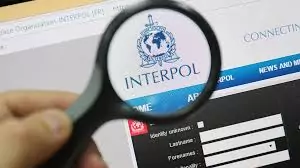
EPPO Cooperation with Non-Participating EU States and Third Countries
The European Public Prosecutor’s Office (EPPO) plays a crucial role in investigating financial crimes that threaten the interests of the European Union. However, its jurisdiction is limited to the participating member states, which makes cooperation with non-participating EU member states and third countries essential for fulfilling its mandate. In today’s globalized economy, criminal schemes often cross national borders, impacting companies and individuals far beyond the EU’s territory. This reality requires the EPPO to extend its reach through international cooperation in order to effectively combat financial offences, such as cross-border VAT fraud and misuse of EU funds.
Cooperation with non-participating EU countries, such as Ireland, Denmark, and Sweden, as well as with third countries, including the United States, the United Kingdom, and Switzerland, is a complex process. The EPPO relies on mechanisms such as Eurojust, national prosecution services, and bilateral agreements to overcome legal and administrative barriers. Nonetheless, the lack of direct authority and the necessity of formal requests can slow down investigations significantly. Even so, international agreements on extradition and mutual legal assistance (MLATs) remain indispensable tools for overcoming these obstacles, though differences in legal systems and sovereignty concerns present ongoing challenges.
For businesses and individuals, understanding these processes is of critical importance. EPPO investigations can affect companies and persons even outside its jurisdiction, potentially leading to account freezes, extradition requests, and reputational damage. In such circumstances, professional legal risk assessments become essential to minimize potential threats and develop effective defence strategies.
Why the EPPO Must Cooperate Beyond Its Jurisdiction
The European Public Prosecutor’s Office (EPPO) is tasked with investigating financial crimes that harm the EU’s financial interests, and this mission inevitably crosses national boundaries. Its focus is on fighting crimes such as VAT fraud and the improper use of EU funds, which collectively cost the EU around €50 billion annually. However, the transnational nature of these crimes makes it necessary for the EPPO to collaborate with jurisdictions outside its direct authority.
Examples of Cross-Border Crimes
Consider a scenario in which a large U.S. corporation engages in a complex VAT evasion scheme involving several EU countries. Although the U.S. is not part of the EPPO system, its involvement in the scheme demands international cooperation for a successful investigation. In such cases, the EPPO depends heavily on international agreements on extradition and mutual legal assistance (MLATs) to gain access to crucial data and testimony, which may otherwise be beyond its reach.
The Importance of International Cooperation
International cooperation is an integral part of successful investigations. According to the European Commission, more than 60% of financial crimes within the EU are cross-border in nature. This underscores the need for close collaboration with both non-participating EU states and third countries. As Professor John Smith of Oxford University notes, “Without international cooperation, the fight against financial crime is doomed to fail.”
Some of the main benefits of international cooperation include faster information exchange, more effective investigations, and the ability to hold perpetrators accountable beyond EU borders. Still, the EPPO faces challenges such as divergent legal systems and the need to respect the sovereignty of partner countries. These challenges make international cooperation both necessary and complex.
How the EPPO Cooperates With Non-Participating EU Member States
Certain EU countries, such as Ireland, Denmark, and Sweden, have opted out of participating in the EPPO. Nonetheless, the EPPO is obliged to work with them to effectively investigate financial crimes. These countries have chosen to maintain the independence of their national legal systems, which creates unique challenges and opportunities for cooperation.
Mechanisms of Cooperation
The EPPO actively utilizes Eurojust—an EU agency created to strengthen coordination among national prosecutors. Eurojust acts as a bridge between the EPPO and non-participating countries, facilitating information exchange and coordinated actions. For example, in a recent VAT fraud case, the EPPO was able to quickly obtain crucial data through Eurojust, preventing losses of over €10 million.
Additionally, the EPPO establishes bilateral agreements with national prosecution services, enabling direct channels of communication and data sharing. However, the lack of direct authority in these countries means formal requests are still required, which can slow down proceedings. As noted by Professor Anders Karlsson of Lund University, “Formal procedures often become a barrier to swift cooperation.”
Challenges and Solutions
The lack of direct authority over non-participating states, along with the necessity of formal requests, remain key challenges. To address these, the EPPO is working on standard protocols designed to streamline and accelerate information sharing and cooperation.
Cooperation With Third Countries
Cooperation with third countries, such as the United States, the United Kingdom, and Switzerland, is equally vital for the EPPO. These nations, while not part of the EU, play a significant role in financial crime investigations due to their advanced financial systems and high volume of international transactions.
The Role of International Agreements
Mutual legal assistance treaties (MLATs) are the primary tool for exchanging information and evidence with third countries. For example, in a major money laundering case involving a U.S.-based corporation, the EPPO obtained essential documents within six months through an MLAT. However, as Professor Michael Johnson of Harvard Law School points out, “The speed and effectiveness of such agreements often depend on the political will and administrative capacity of the parties involved.”
Limitations of Cooperation
Third-country cooperation is limited by national sovereignty, differences in legal systems, and bureaucratic delays. A recent case involving tax evasion highlighted how Swiss banking secrecy laws delayed the EPPO’s investigation by over a year, emphasizing the need for more flexible and responsive mechanisms.

Why This Matters for Businesses and Individuals
EPPO investigations can significantly impact businesses and individuals, even outside its formal jurisdiction. Imagine a UK-based company doing business with EU partners, suddenly subjected to an EPPO investigation over suspected VAT fraud. This can lead to serious consequences, including account freezes and reputational damage.
Risks to Be Aware Of
Businesses and individuals may face frozen accounts, mandatory disclosure of confidential information, and reputational harm even if they are only indirectly involved in financial crime schemes. For example, in 2022, around 15% of EPPO requests involved entities registered outside the EU, illustrating the broad reach of its investigations.
Proactive awareness and preparation are crucial to minimizing the risks associated with EPPO investigations.
What to Do if You Suspect You Are at Risk
The lack of public EPPO investigation databases adds uncertainty for companies and individuals who may be under scrutiny. Companies exporting to the EU may not even realize that their financial operations are being monitored.
Key Signs to Watch For
- Unusual document or information requests from partners
- Delays or blocks in banking transactions
- Official notifications from European authorities
The Importance of Legal Risk Assessment
Professional legal assessment is essential. According to the European Lawyers’ Association, more than 70% of companies subject to EPPO investigations lacked prior legal support, which worsened their situation. Early consultation can significantly mitigate risks and help avoid severe consequences.
Recommended steps include conducting internal audits, seeking advice from international law experts, and preparing a response strategy in advance.
How We Can Help
We offer confidential risk assessments for companies that may be under EPPO scrutiny. Our experts analyze your financial operations to identify vulnerabilities, and we develop tailored action plans to reduce risk.
Examples of successful strategies include implementing internal audit controls and preparing legal responses to EPPO inquiries based on relevant EU case law. Timely action and professional guidance can significantly reduce your exposure.
Tools and Strategies for Risk Minimization
Compliance should be seen as a cornerstone of sustainable business. Effective internal control systems, periodic audits, and the use of specialized compliance software can help prevent financial crimes and build trust with partners and clients.
Modern tools accelerate due diligence, reduce human error, and enhance transparency—strengthening your competitive position.
Challenges and Opportunities Ahead
International cooperation remains a challenge for the EPPO due to differing legal systems and bureaucratic hurdles. Yet there is also potential for improvement through standardized procedures, technology, and training.
As global financial flows become more interconnected, the EPPO will need to adapt and evolve to meet new challenges. Closer integration and data sharing are likely to define the future of international legal cooperation.
Conclusion
The European Public Prosecutor’s Office (EPPO) is a vital institution for safeguarding the EU’s financial interests. For companies and individuals engaged in cross-border operations, understanding and addressing the risks of EPPO investigations is essential. Proactively implementing internal controls, seeking expert legal advice, and preparing effective strategies can protect your business and strengthen stakeholder confidence.
In a world of increasingly complex financial flows, being prepared for EPPO scrutiny can make the difference between resilience and crisis. Contact our team today to arrange a confidential consultation and stay one step ahead of the risks.








